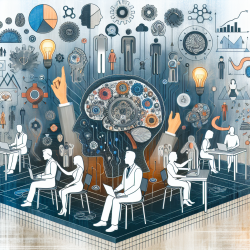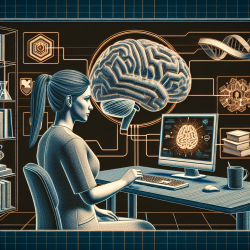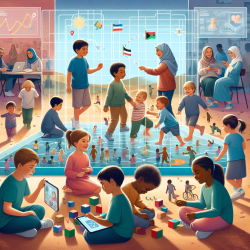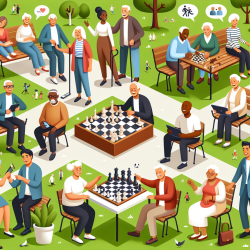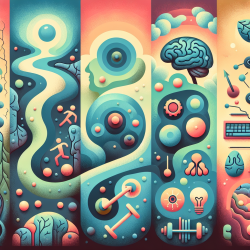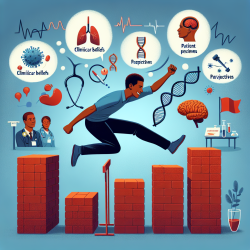The Cognitive Reserve (CR) model offers a transformative approach to understanding cognitive resilience in individuals, particularly in the context of aging and neurological challenges. As practitioners in the field of education and therapy, leveraging insights from recent research on CR can significantly enhance our practice and improve outcomes for students.
Understanding the Cognitive Reserve Model
The CR model suggests that individuals with higher cognitive reserves can better withstand brain damage or age-related cognitive decline. This reserve is built through life experiences such as education, occupational attainment, and engagement in intellectually stimulating activities. The recent study titled "The Current and Retrospective Cognitive Reserve (2CR) survey and its relationship with cognitive and mood measures" provides valuable insights into how these factors interact with cognitive functioning and mood.
The 2CR Survey: A Tool for Practitioners
The 2CR survey is a comprehensive tool designed to assess both current and retrospective cognitive reserve factors. It includes dimensions such as socio-economic status, leisure activity, social engagement, family engagement, and spiritual/religious activity. This multidimensional approach allows practitioners to understand how different life stages contribute to an individual's cognitive reserve.
Key Findings from the Research
- Cognitive Abilities: Both current (CRc) and retrospective (CRr) cognitive reserves are positively correlated with measures of intelligence and working memory.
- Mood Measures: The study found significant negative correlations between CR factors and depressive symptoms, highlighting the protective role of cognitive reserve against mood disorders.
- Differential Associations: The research indicates that while CRr is more strongly associated with intelligence measures, CRc shows stronger associations with working memory and mood measures.
Implementing Research Insights in Practice
As practitioners, we can apply these findings by encouraging activities that build cognitive reserve in our students. Here are some strategies:
- Promote Lifelong Learning: Encourage students to engage in continuous learning opportunities that challenge their intellect.
- Cultivate Social Engagement: Facilitate social interactions through group activities or community involvement to enhance social reserves.
- Nurture Emotional Well-being: Integrate practices that support mental health, such as mindfulness or stress-reduction techniques.
- Diverse Activity Participation: Encourage participation in varied activities that stimulate intellectual, social, and physical aspects.
The 2CR survey's findings underscore the importance of a holistic approach to building cognitive reserve across different life stages. By integrating these insights into our practice, we can better support our students' cognitive development and emotional well-being.
